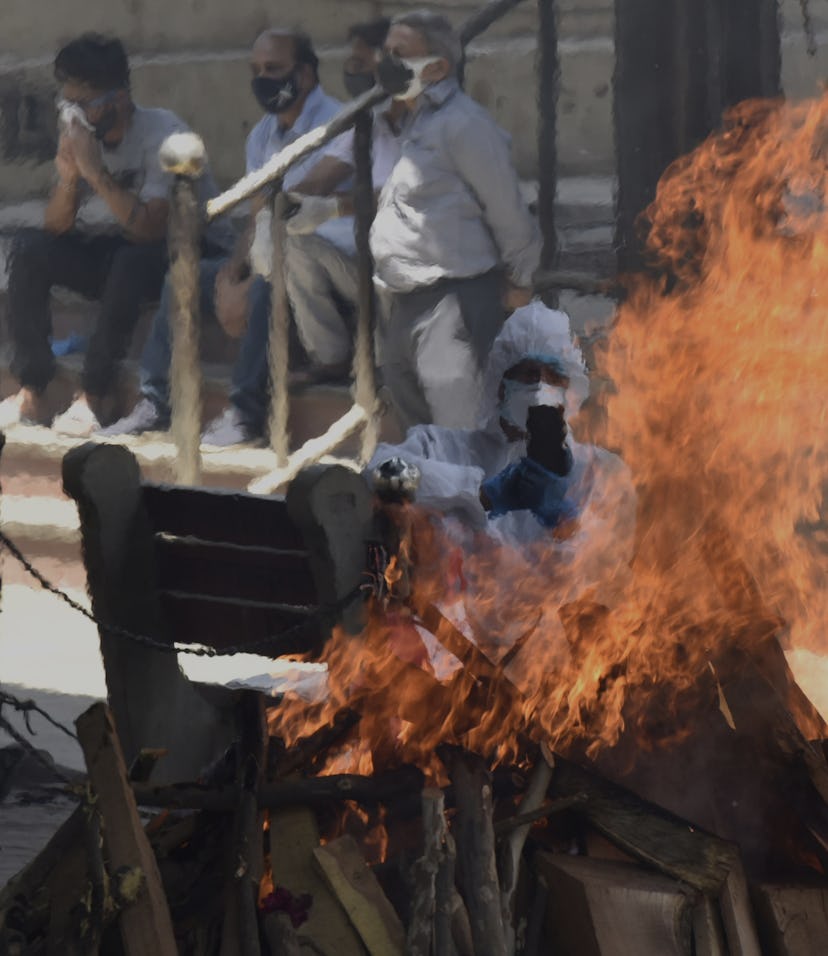Culture
India's government is censoring social media criticism of COVID-19 surge
The country's leadership says this is an effort to combat misinformation. Watchdogs say it's shameless censorship.

COVID-19 cases have skyrocketed across India in recent weeks, and the country’s government does not want the general public to know how it’s handling the situation. The Indian government asked Twitter, Facebook, and Instagram to block posts critical of its mismanagement of the renewed public health crisis, according to a report from The Wall Street Journal.
Government officials have gone on the record to say that, yes, they did indeed ask social networks to remove these posts — but their stated reasoning is that the posts qualify as COVID-related misinformation. Many of the posts included photos of dead bodies, which the government says have been taken out of context. At least 100 tweets have been removed.
“Certain people are misusing social media to create panic in society,” said India’s Ministry of Electronics and Information Technology. The organization did not address which laws, in particular, were used to address social media companies.
There is a fine line between combatting misinformation and overstepping into uncouth censorship. India reported more then 350,000 new cases of COVID-19 today alone, and more than 2,000 people have been dying each day in the country. The Indian government doesn’t seem to think the public deserves to know the full extent of that tragedy.
Why so secretive? — Even if we give the Indian government the benefit of the doubt here — perhaps officials really did believe these posts to constitute dangerous misinformation — the way they went about removing them was suspicious, to say the least. The government asked Twitter and Facebook to remove these tweets on a basis of legality, but it kept the proceedings very hush-hush. That’s enough to send up red flags for internet watchdogs.
“Any legal order for directing blocking of websites should contain reasoning and be made public,” said Apar Gupta, executive director of the New Delhi-based Internet Freedom Foundation. “Neither of these steps are being carried out right now.”
Shameless as hell — And that is if we choose to believe those in power. The government’s official stance is that the banned tweets are secretive or taken out of context — but some of them are just generally critical of the government’s response. Removing those tweets is not a great look. The Indian American Muslim Council, a Washington, D.C.-based advocacy group, called the removal “shamelessly self-serving.”
The country’s IT Ministry does not agree. “The government welcomes criticism,” it said in a statement, “but it is necessary to take action against those users who are misusing social media during this grave humanitarian crisis for unethical purposes.”
Quickly becoming a pattern — This week’s government censorship is made all the more concerning by the fact that it’s nowhere near the first time we’ve seen similar action taken by India’s government leaders. In the not-too-recent past, India’s government threatened to throw Facebook employees in jail if they didn’t comply with takedown requests. Yikes.
India’s IT Ministry has been open about banning content it deems dangerous, with or without proof. Last year the government banned almost 60 Chinese apps, including TikTok and WeChat, based on unfounded reports of these apps “stealing” user data. Meanwhile, companies like Netflix, Amazon, and Disney have had to bend over backwards to dodge Indian censorship.
This week’s censorship would have been enough to send up some red flags — when taken in context, it’s even more concerning.